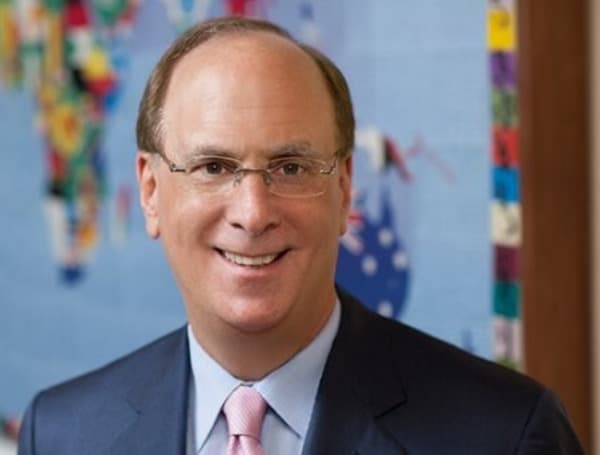The New York City Comptroller Brad Lander warned asset managers Tuesday that failing to support climate shareholder resolutions could result in New York City pulling its funds, the latest salvo in an ongoing battle over climate investing practices.
Lander filed shareholder resolutions with Bank of America, JPMorgan Chase, Goldman Sachs and Royal Bank of Canada calling for the banks to establish specific plans to carry out “net zero” investment strategies, according to a press release Tuesday. If asset managers such as BlackRock — the world’s largest and a major proponent of environmental, social and corporate governance (ESG) investment strategies — that own stake in these banks fail to vote in favor, the NYC Comptroller might pull billions in assets from their control, Semafor reported.
“Voting for these resolutions is about the lowest bar you can have,” Lander told Semafor. “We’re only going to be able to hit our net zero targets if our asset managers raise the bar. We will, therefore, begin to look at our manager selection through the lens of our commitments.”
In the news: Florida Pension Managers Chase Returns Amid “ESG” Uproar
While Republican opposition to ESG in recent years is well-known, with several states pulling billions in assets from ESG-friendly managers, Lander’s move comes at the forefront of an emerging movement from Democratic politicians to pressure asset managers to back ESG investments.
On Wednesday, Democratic Reps. Sean Casten of Illinois and Juan Vargas of California announced they would co-chair the newly formed Sustainable Investment Caucus, which was comprised of the two alongside five other Democratic representatives, according to a press release from Casten’s office.
“The market has spoken,” Vargas said, according to the press release. “To investors across the country, ESG issues are material. Sustainable investment is here to stay … My constituents are very interested in this issue, and I think we need to do more.”
In the news: Florida CFO Patronis To Remove $2 Billion In BlackRock Assets Due To ESG Standards
In opposition to growing anti-ESG sentiment on the right, 13 Democratic state treasurers, in addition to Lander, wrote a September letter blasting Republicans for failing to see that “climate change is real” and a “business threat,” encouraging investors to consider the long-term social and climate impact of their actions.
Many public pension plans in Democratic states, such as those in California and Illinois, have policies that require “sustainable” investment that considers the social and environmental impact of an investment. Both New York City and the state of New York take ESG principles to be part of their investment philosophies.
The California Public Employees’ Retirement System (CalPERS), which manages roughly $460 billion for 1.9 million Californians, touts its ability to “advocate” in areas like “workforce diversity and climate change” thanks to its “sustainable investing” practice. ESG strategies “maximize returns” because it keeps investors informed about “potential threats” including “catastrophic climate events,” according to CalPERS.
BlackRock, and asset managers like it, typically vote against shareholder resolutions that encourage stricter climate controls, preferring to support the banks they hold a stake in, according to Semafor. Lander’s Tuesday resolutions call for banks to set specific emissions targets for their portfolios to reach by 2030, to push portfolios to eventually reach net zero emissions.
In the news: Florida Republican Sen. Rubio Wants Pfizer To Answer “Mutating” Claims Made In Video Sting
BlackRock manages $43 billion in city pension funds for the NYC Comptroller, roughly 18% of the Comptroller’s $242 billion in pension funds, according to Seamfor.
To date, the largest Republican withdrawal has been the $2 billion that Florida Chief Financial Officer Jimmy Patronis pulled in December, alleging that the company was using Floridians’ money for a “social-engineering project.”
Louisiana and Missouri have respectively pulled $794 million and $500 million in pension funds from BlackRock, according to Reuters.
A coalition of 15 Republican state treasures led by Treasurer Riley Moore of West Virginia, in November signed a letter to announce a collective boycott of asset managers that boycotted the fossil fuel industry. In December, the Republican minority on the U.S. Senate Committee on Banking, Housing and Urban Affairs wrote a report decrying the “Big Three” asset Blackrock, State Street and Vanguard for being the “new emperors” of asset management, taking advantage of their power to “advance liberal social goals.”
BlackRock announced in December that while it does not intend to make major adjustments to its ESG policies, it will ask companies to disclose carbon emissions and other climate impacts to give investors the ability to review them.
The company told the Daily Caller News Foundation in December that it was “surprised” by Florida’s decision since the company had generated strong returns for the state, and said it was “disturbed” by Republican efforts to jeopardize “high-quality investments.”
In the news: Cops’ Video Of Paul Pelosi Attack Vindicates NBC Reporter Suspended For Telling The Truth
When asked how it planned to vote on Lander’s resolutions, the company declined to comment, and directed the DCNF to its 2021-2022 report on proxy voting.
“This proxy season underscored our belief that a constructive stewardship approach contributes to companies making meaningful progress in their climate-related planning and disclosures, where this is a material financial risk and/or opportunity for them,” Blackrock’s report reads. “But it also reinforced our long-held view that the pathway to decarbonization is difficult to predict and will not occur in a straight line. Consistent with that view, we have not supported certain climate shareholder proposals that are overly prescriptive or micro-manage how companies should decarbonize.”
Android Users, Click Here To Download The Free Press App And Never Miss A Story. Follow Us On Facebook Here Or Twitter Here.

